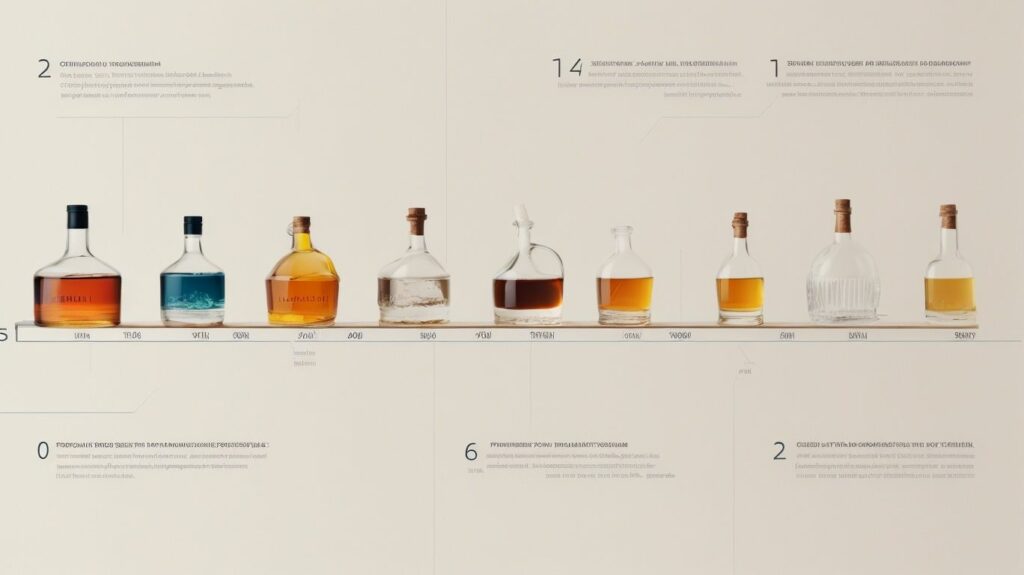20+ Years Experience
Specialist Alcohol Help

The true cost of alcohol consumption is often overlooked, and its impact on our physical, mental, and social well-being can be substantial.
During Alcohol Awareness Week, we aim to shed light on the various aspects of alcohol consumption, unravelling its effects on individuals and society.
This blog post will guide you through the objectives of this campaign, the health implications of alcohol, the financial and social costs, and the support available for those affected.
Alcohol Awareness Week is an annual event hosted by Alcohol Change UK, focused on educating the public on the potential risks associated with alcohol consumption and offering support to those affected.
The primary objective of this campaign is to raise awareness about the true cost of alcohol, emphasising its impact on our health, finances, and relationships.
It is important to understand the potential risks associated with alcohol consumption and to be aware of the risks associated with alcohol consumption.
This year, Alcohol Awareness Week revolves around the theme “Alcohol and Cost,” aiming to highlight the true cost of alcohol consumption.
The consequences of drinking regularly and excessively include physical and mental health issues, financial costs, and social costs, with an estimated total social cost of alcohol to society annually of at least £21 billion.
These costs can be felt by individuals, families, and communities, and can have a lasting impact.
The campaign extends support to those impacted by alcohol through educational materials, resources, and treatment alternatives, helping them save money and improve their lives.
The effects of heavy drinking on families can be devastating, leading to health issues such as increased blood pressure and other alcohol-related problems.
Efforts like Lambeth Together’s five-year health and care plan support individuals in leading healthier lives, enhancing prevention and early support, and providing access to trusted health and care services.
Alcohol consumption can have serious implications for one’s health, both mentally and physically.
Excessive alcohol consumption may lead to dependence, addiction, and mental health complications, while light to moderate drinking may possess some potential health advantages.
In this section, we will delve deeper into the mental health aspects and public health concerns associated with alcohol consumption.
Alcohol has been known to detrimentally affect mental health, resulting in depression, anxiety, and addiction.
The consequences of alcohol consumption on mental health can include amplified negative emotions such as anxiety, depression, anger, and aggression, as well as exacerbating existing mental illnesses.
Furthermore, alcohol can influence cognitive functioning, leading to memory loss and learning issues.
The misuse of alcohol is a grave public health concern, affecting individuals, families, and society as a whole.
Alcohol misuse is a causal factor in more than 60 medical conditions, including cancer, high blood pressure, and liver disease, all of which contribute to various health problems such as heart disease.
Additionally, excessive alcohol use can result in injuries, violence, and poor mental health, with the predominant source of alcohol-related harm attributable to excessive or hazardous drinking.
The financial and social implications of alcohol consumption are often overlooked, yet can be quite substantial.
These costs not only affect the individual consuming alcohol but also their families and society as a whole.
In this section, we will explore how reducing alcohol intake can save money and lead to better relationships.
Decreasing alcohol intake can result in substantial financial savings for individuals and families.
The advantages of cutting back on alcohol consumption extend beyond finances, as it can also improve sleep quality, mood, weight management, blood pressure, cholesterol levels, energy levels, and overall physical and mental health, and even result in clearer skin.
These health benefits are just the tip of the iceberg when it comes to the positive effects of exercise.
Reducing one’s intake of alcoholic beverages can lead to improved relationships and an overall improvement in quality of life.
The advantages of decreasing alcohol consumption in relationships include more quality time together, fewer arguments and conflicts, improved communication and emotional connection, better overall mental health and mood, and enhanced relationship satisfaction.
These benefits can be seen in both short-term and long-term relationships. In the short, in the short, in the short.
Real-life accounts of alcohol’s impact include testimonials from former alcoholics regarding the repercussions of alcohol abuse and addiction.
These stories demonstrate the detrimental effects such as blackouts, health deterioration, strained relationships, and the overall effect on one’s life.
Sharing these real-life stories emphasises the importance of raising awareness and providing support for those affected by alcohol.
Participate in Alcohol Awareness Month. Week, you can use social media platforms, organise events, or engage in local campaigns.
Conversations with friends, family, and community members regarding the consequences of drinking can be beneficial in raising awareness.
Reflect on your own drinking habits, consider the amount you consume, the frequency of consumption, and the potential repercussions of excessive alcohol consumption.
When you drink alcohol, extend support and encouragement to those struggling with alcohol-related issues, act as a sounding board, and provide resources or information about accessible support services.
A plethora of resources are available for those who require assistance and information regarding alcohol-related matters. Services like Drink Coach provide a complimentary, expeditious, and confidential alcohol assessment.
Organisations like Lextox offer hair drug and alcohol testing to identify families necessitating the detection of alcohol substances.
Alcohol Awareness Week is a chance for individuals to reflect on their relationship with alcohol and how it can be improved for their health and well-being.
It is also an opportunity to seek support from those who may have concerns about themselves or their family.
Alcohol Change UK runs and manages Alcohol Awareness. Week as part of its mission to reduce the harm caused by alcohol.
April is Alcohol Awareness Month. It is a time to raise awareness and understanding of alcohol abuse and its effects on physical and mental health.
Alcohol Awareness Month. The week is a critical opportunity to break the stigma and open up conversations around alcohol abuse and its risks to health.
It can help empower people to feel confident in addressing their dependency and lead to improved physical, mental and emotional well-being.
Alcohol Change UK is hosting Alcohol Awareness Month from 3-9 July. This year’s theme is focused on Alcohol and Cost.
The aim of the campaign is to raise awareness of the financial costs associated with alcohol misuse and to encourage people to think about their own drinking habits. It will also provide other services.
The main objective of Alcohol Awareness Week is to raise awareness about the risks of alcohol consumption and offer assistance to those affected.
In conclusion, Alcohol Awareness Week serves as a crucial reminder of the true cost of alcohol consumption on individuals and society.
By understanding the health implications, financial and social costs, and the support available, we can make informed decisions about our alcohol consumption and help those affected by alcohol-related issues.
Together, we can pave the way to a healthier, happier, and more financially secure future.
There are a range of other services that we can provide. Have a look at the list below for more information:











































































































































We Aim To Reply To All Enquiries With-in 24-Hours